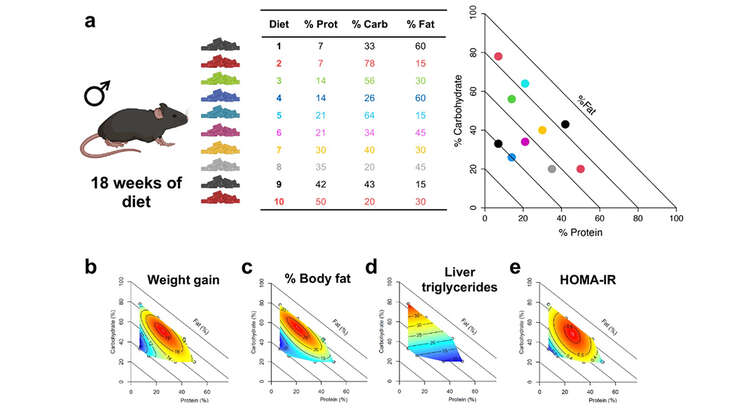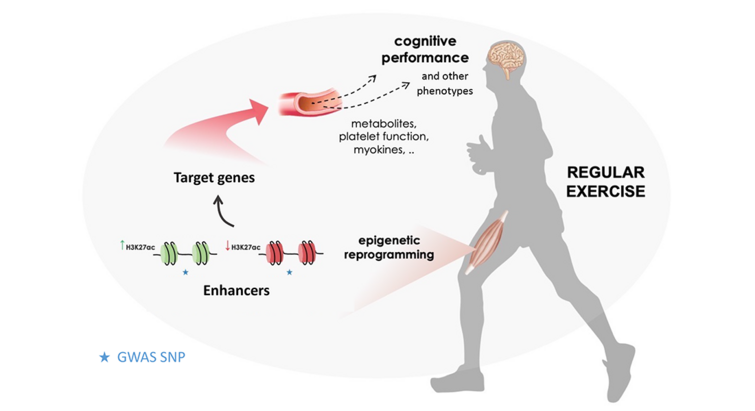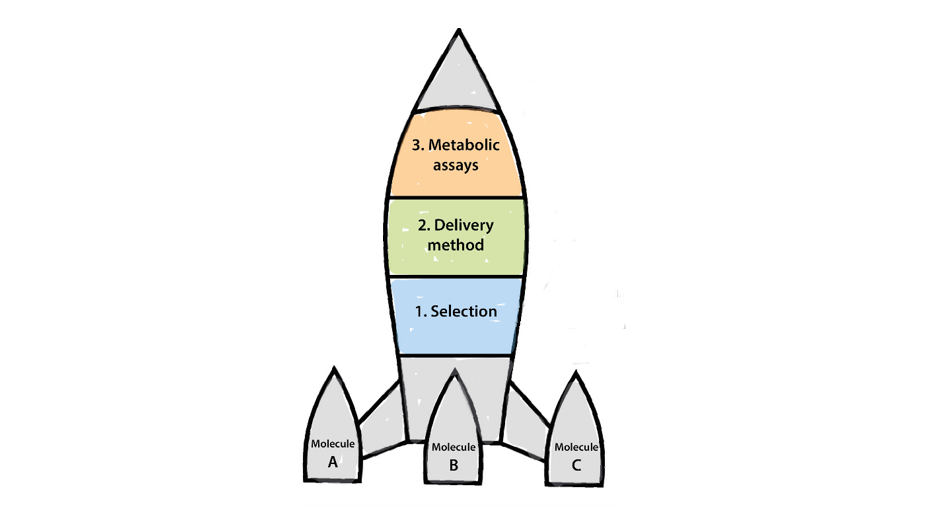
Metabolic Epigenetics in the Barrès Group
The Barrès Group investigates how environmental factors in the broad sense influence long-term metabolic health in present and future generations.

Metabolic health and susceptibility to metabolic disease may in part be attributed to the gene expression programme that orchestrates when and where genes and their products are expressed. Epigenetic signals such as DNA methylation, chromatin structure, histone modifications and small RNAs contribute to modulate the gene expression program in time and space, thereby integrating the biological response to lifestyle and environmental factors that may result in disease.
The overarching objective of the Barrès Group is to understand how environmental and lifestyle factors influence long-term metabolic health, both in present and future generations. In particular, the group is interested in identifying the mechanisms by which diet and physical exercise influence somatic and gametic cells and how these processes alter the long-term function of metabolic tissues and organs.
“Skeletal muscle enhancer interactions identify genes controlling whole-body metabolism”
Published in Nature Communications in 2020, this study identified the genes altered by chromatin remodelling in insulin-resistant muscle cells. Using an integrated functional genomic approach, this work provides a ressource of candidate genes involved in whole body metabolic dysfunction.
“Preadipocytes from obese humans with type 2 diabetes are epigenetically reprogrammed at genes controlling adipose tissue function”
Published in the International Journal of Obesity in 2018, this study uses RNA sequencing to assess the transcriptomic profile of visceral adipose tissue preadipocytes collected from Lean, Obese and Obese with type 2 diabetes. Its findings support a mechanism by which adipocyte precursors are epigenetically reprogrammed in vivo.
“Obesity and Bariatric Surgery Drive Epigenetic Variation of Spermatozoa in Humans”
Published in Cell Metabolism in 2016, this study shows that the epigenome of human spermatozoa dynamically changes under environmental pressure and offers insight into how obesity may propagate metabolic dysfunction to the next generations.
Staff list
| Name | Title | Phone | |
|---|---|---|---|
| Afshar-Bahadori, Yasmin | Master Student | +4535334083 | |
| Altintas, Ali | Assistant Professor | +4535330625 | |
| Barrès, Romain | Professor | +4535337025 | |
| Hansen, Ann Normann | External, Ph.d Student | +4535334035 | |
| Hansson, Svenja | Research Assistant | ||
| Hjort, Line | Postdoc | ||
| Hufnagel, Antonia Sophie | Postdoc | +4535326681 | |
| Iversen, Jo Frøkjær | PhD Fellow | +4535332685 | |
| Landtved, Jonas Pedersen | External, Ph.d Student |







